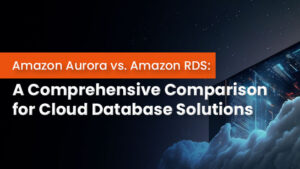
How to Apply Cybersecurity in Fintech for User Protection
Introduction As fintech evolves, it brings innovative financial solutions that enhance user convenience, such as mobile banking, digital lending, and secure payments. However, as financial
Exclusive Discount Offer: Unlock 3-Months of IPSpecialist’s Premium Plan for Just $59.99 $15.99! Save $44 Today! Subscribe Now!

Introduction As fintech evolves, it brings innovative financial solutions that enhance user convenience, such as mobile banking, digital lending, and secure payments. However, as financial

Introduction In the realm of cloud computing, Amazon Web Services (AWS) offers a variety of managed database options that help organizations scale, secure, and optimize

Introduction In the ever-evolving landscape of cybersecurity, zero-day attacks pose a significant threat to businesses and individuals alike. A zero-day attack exploits a software vulnerability
Table of Contents


Amazon Elastic Compute Cloud (EC2) simple web service interface allows you to obtain and configure capacity with minimal friction. It provides you with complete control of your computing resources and lets you run on Amazon’s proven computing environment. Amazon EC2 reduces the time required to obtain and boot new server instances to minutes, allowing you to quickly scale capacity, both up and down, as your computing requirements change. Amazon EC2 changes the economics of computing by allowing you to pay only for the capacity that you actually use. Amazon EC2 provides developers the tools to build failure resilient applications and isolate them from common failure scenarios. Amazon Elastic Compute Cloud (Amazon EC2) is a web service that provides secure, resizable compute capacity in the cloud. It is designed to make web-scale cloud computing easier for developers.
Amazon EC2 offers the tools to build failure resilient applications and isolate themselves from common failure scenarios. When designing a system, a good practice is to assume things will fail. In this way, you will always develop, implement and deploy with automatic recovery and restore strategy. With Amazon EC2, you can provision multiple instances at once, so that even if one of them goes down, the system will still be up and running.
EC2 is a computer-based service. It is not serverless. You are physically connecting to a virtual server. Always design for failure and provision at least one EC2 instance in each availability zone to avoid a system failure in case if anyone’s instance goes down.
Amazon EC2 offers an extensive variety of instance types optimized for different use cases. Instance types consist of varying combinations of CPU, memory, storage, and networking capacity with one or more instance sizes giving you the flexibility to select computational resources according to the requirements of your target workload.

Figure: Amazon EC2 Instance Types
The instance type is the virtual hardware, which is supporting an Amazon EC2 instance. The classification of these instance types is as below:
Instance families are a collection of EC2 instances that are grouped according to the ratio of memory, network performance, CPU size, and storage values to each other. For example, the m4 family of EC2 provides a balanced combination of computing, memory, and network resources. Different instance type families are designed to accommodate different types of workloads, but they all have the same linear scale-up behavior within the family.
Want to learn more? Take this course or try it in a free 7-day trial here.
|
Family |
Type | Description |
|
m1 |
General Purpose | To provide a balance of computing, memory, and networking resources for a variety of workloads |
|
c4 |
Compute Optimized | For workloads requiring significant processing |
|
r3 |
Memory Optimized | For memory-intensive workloads |
|
i2 |
Storage Optimized | |
|
g2 |
GPU-based Instances |
For workloads requiring high amounts of storage. Intended for graphics and general-purpose GPU compute workloads |
| t1 | Micro |
To provide a small number of consistent CPU resources |
Table: EC2 Instance Families
On customer demand and need, AWS occasionally introduces new instance families. You can check the list of the latest instance families in AWS documentation.
Amazon EC2 provides the following features:
Amazon Elastic Compute Cloud (Amazon EC2) provides scalable computing capacity in the Amazon Web Services (AWS) cloud. Using Amazon EC2 eliminates your need to invest in hardware upfront, so you can develop and deploy applications faster. You can use Amazon EC2 to launch as many or as few virtual servers as you need, configure security and networking, and manage storage. Amazon EC2 enables you to scale up or down to handle changes in requirements or spikes in popularity, reducing your need to forecast traffic.
Now if you are still confused about how and where to get started, then IPSpecialist is the place for you. What is IPSpecialist you ask? IPSpecialist is a one-stop solution for all your problems. We provide online courses, study guides, e-book, practice questions, quick reference sheets, and much more! Visit our website https://ipspecialist.net/ to learn more and get amazing deals!
© 2024 All rights reserved | Privacy Policy | Terms and Conditions | Sitemap | Cookie Policy




